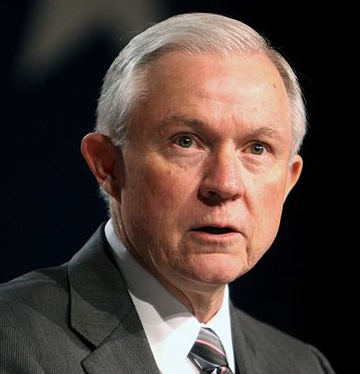Attorney General Jeff Sessions reportedly offered to resign

Attorney General Jeff Sessions/Gage Skidmore
Attorney General Jeff Sessions reportedly offered to resign amid growing tensions with President Donald Trump.
ABC News was first to report the resignation offer, in a story based on anonymous sources. Other stories followed, including articles by the New York Times, the Washington Post and the Wall Street Journal (sub. req.). Trump did not accept Sessions’ offer, and is aware of the potential political fallout from another high-profile change following his firing of FBI director James Comey in May, the stories report.
According to the New York Times, Sessions told Trump he needed freedom to do his job. The offer, according to the Wall Street Journal, “wasn’t a formal one, and Mr. Sessions, an early and steadfast supporter of Mr. Trump, doesn’t want to quit and doesn’t believe he should.”
The resignation offer came as Trump has grown increasingly disenchanted with the former Alabama senator because of his decision to recuse himself from any investigations involving the presidential campaign. Trump learned about the recusal when he was at an event and felt “blindsided” by the decision, the New York Times reported on Tuesday.
Trump is also upset by injunctions preventing his temporary travel ban from taking effect. In a series of Monday morning tweets, he appeared to blame the Justice Department. “The Justice Dept. should have stayed with the original travel ban, not the watered down, politically correct version they submitted to S.C.,” Trump tweeted, a reference to the cert petition before the Supreme Court.
Trump’s anger over the recusal has not diminished, according to ABC. “Two sources close to the president say he has lashed out repeatedly at the attorney general in private meetings, blaming the recusal for the expansion of the Russia investigation, now overseen by special counsel and former FBI director Robert Mueller,” the network reports.
Sources said the frustration runs both ways. Sessions was unhappy in March when Trump chose New Jersey Gov. Chris Christie to lead a task force on opioids without consulting with him, a source told the Times.



